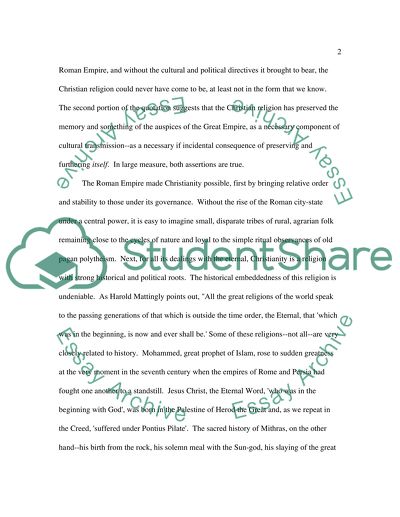Cite this document
(“The Rise of Christianity in the Roman Empire Essay”, n.d.)
The Rise of Christianity in the Roman Empire Essay. Retrieved from https://studentshare.org/religion-and-theology/1501163-the-rise-of-christianity-in-the-roman-empire
The Rise of Christianity in the Roman Empire Essay. Retrieved from https://studentshare.org/religion-and-theology/1501163-the-rise-of-christianity-in-the-roman-empire
(The Rise of Christianity in the Roman Empire Essay)
The Rise of Christianity in the Roman Empire Essay. https://studentshare.org/religion-and-theology/1501163-the-rise-of-christianity-in-the-roman-empire.
The Rise of Christianity in the Roman Empire Essay. https://studentshare.org/religion-and-theology/1501163-the-rise-of-christianity-in-the-roman-empire.
“The Rise of Christianity in the Roman Empire Essay”, n.d. https://studentshare.org/religion-and-theology/1501163-the-rise-of-christianity-in-the-roman-empire.


